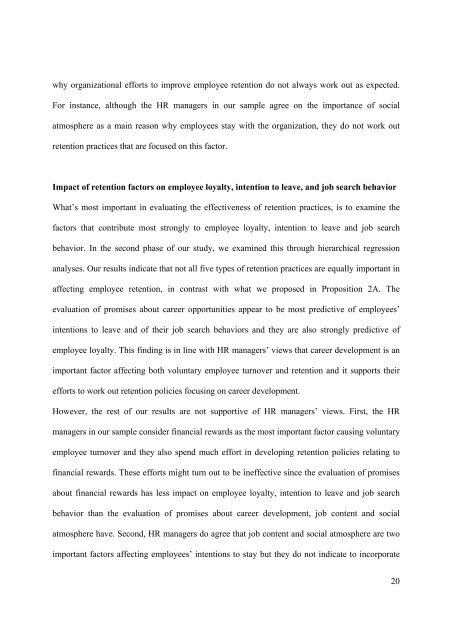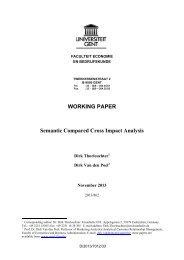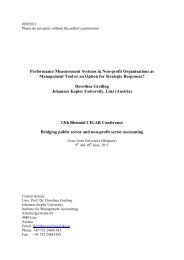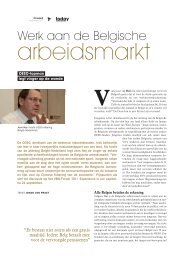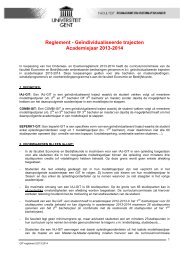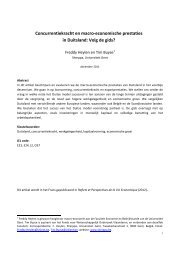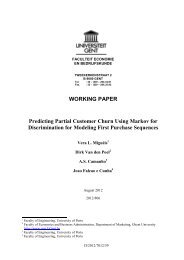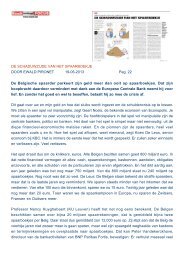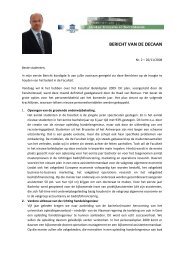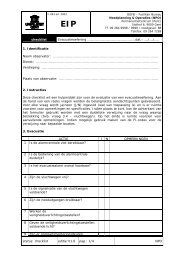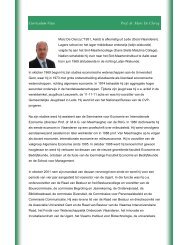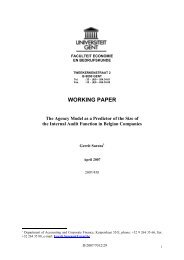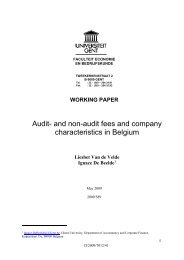WORKING PAPER - Faculteit Economie en Bedrijfskunde
WORKING PAPER - Faculteit Economie en Bedrijfskunde
WORKING PAPER - Faculteit Economie en Bedrijfskunde
Create successful ePaper yourself
Turn your PDF publications into a flip-book with our unique Google optimized e-Paper software.
why organizational efforts to improve employee ret<strong>en</strong>tion do not always work out as expected.<br />
For instance, although the HR managers in our sample agree on the importance of social<br />
atmosphere as a main reason why employees stay with the organization, they do not work out<br />
ret<strong>en</strong>tion practices that are focused on this factor.<br />
Impact of ret<strong>en</strong>tion factors on employee loyalty, int<strong>en</strong>tion to leave, and job search behavior<br />
What’s most important in evaluating the effectiv<strong>en</strong>ess of ret<strong>en</strong>tion practices, is to examine the<br />
factors that contribute most strongly to employee loyalty, int<strong>en</strong>tion to leave and job search<br />
behavior. In the second phase of our study, we examined this through hierarchical regression<br />
analyses. Our results indicate that not all five types of ret<strong>en</strong>tion practices are equally important in<br />
affecting employee ret<strong>en</strong>tion, in contrast with what we proposed in Proposition 2A. The<br />
evaluation of promises about career opportunities appear to be most predictive of employees’<br />
int<strong>en</strong>tions to leave and of their job search behaviors and they are also strongly predictive of<br />
employee loyalty. This finding is in line with HR managers’ views that career developm<strong>en</strong>t is an<br />
important factor affecting both voluntary employee turnover and ret<strong>en</strong>tion and it supports their<br />
efforts to work out ret<strong>en</strong>tion policies focusing on career developm<strong>en</strong>t.<br />
However, the rest of our results are not supportive of HR managers’ views. First, the HR<br />
managers in our sample consider financial rewards as the most important factor causing voluntary<br />
employee turnover and they also sp<strong>en</strong>d much effort in developing ret<strong>en</strong>tion policies relating to<br />
financial rewards. These efforts might turn out to be ineffective since the evaluation of promises<br />
about financial rewards has less impact on employee loyalty, int<strong>en</strong>tion to leave and job search<br />
behavior than the evaluation of promises about career developm<strong>en</strong>t, job cont<strong>en</strong>t and social<br />
atmosphere have. Second, HR managers do agree that job cont<strong>en</strong>t and social atmosphere are two<br />
important factors affecting employees’ int<strong>en</strong>tions to stay but they do not indicate to incorporate<br />
20


